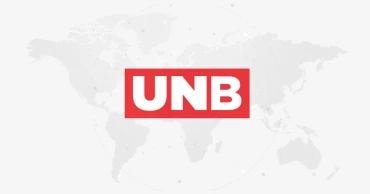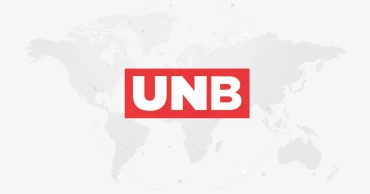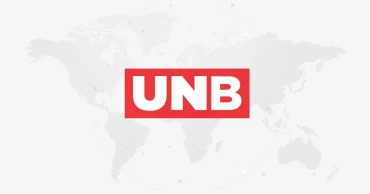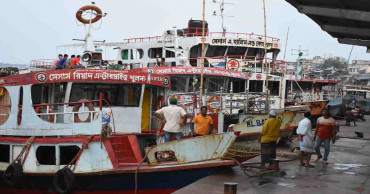fuel price
No plan to raise fuel prices right now, says Finance Adviser amid Iran-Israel conflict
The government is closely monitoring the ongoing conflict between Iran and Israel but has no immediate plan to raise fuel prices, Finance Adviser Dr Salehuddin Ahmed said on Tuesday.
“We are observing the situation. If the fighting drags on, it may put pressure on us. But for now, we will wait,” he told reporters after a meeting of the Advisory Council Committee on Economic Affairs and Advisory Council Committee on Public Purchase at the Cabinet Division’s new conference room at the Secretariat.
Responding to a question on whether the conflict could affect domestic fuel prices, Dr Salehuddin said, “There has already been a slight rise in prices internationally, but it hasn’t affected the orders we’ve already placed.”
The government is also monitoring gas and LNG prices, he added.
Change in budgtory proposal in whitening black money may be considered: Finance Adviser
“If the LNG price goes up significantly, we will consider that in our planning. Fortunately, the LNG import proposal we approved today is at the old price. We’re lucky to be getting it at the earlier rate.”
Asked if there is any current impact on trade, he said, “No, there is no impact on trade as of now.”
On whether the government is taking any special preparations in anticipation of possible future disruptions, the adviser said, “The LNG and fertiliser import proposals we approved today are at previous prices. Any new proposals in the future may face price effects.”
Regarding contingency plan in case the war prolongs, Dr Salehuddin said the Energy Ministry is working on alternatives. “We heavily rely on LNG. The conflict could affect not only fuel but also fertiliser imports and maritime transport. Ships travel through the Strait of Hormuz which could be impacted. But I don’t think the war will last long.”
No scope for revolutionary budget overnight: Finance Adviser
In response to a question on whether fuel prices have already increased globally, he said, “Yes, prices have gone up in many countries, but we are not making any changes yet. We will wait and watch.”
8 months ago
Diesel, octane, petrol prices cut; kerosene up by Tk 10
The government has reduced the prices of diesel, octane and petrol while raising the price of kerosene.
The new rates will come into effect from midnight on Sunday.
According to a notification issued by the Energy and Mineral Resources Division on Saturday, diesel will be cheaper by Tk 2 per litre, while octane and petrol prices have each been slashed by Tk 3 per litre.
In contrast, the price of kerosene has been increased by Tk 10 per litre.
With the latest adjustment, diesel will now cost Tk 102 per litre, down from Tk 104. Octane will be sold at Tk 122 per litre, down from Tk 125, and petrol will cost Tk 118 per litre, reduced from Tk 121.
Eight-hour strike by Khulna fuel traders over 10-point demand underway
Kerosene, however, will now be priced at Tk 114 per litre, up from Tk 104, creating a Tk 4-per-litre difference with petrol. This change aligns with the new pricing guideline aimed at preventing fuel adulteration.
Earlier, on May 19, the Energy and Mineral Resources Division introduced the revised "Automated Fuel Pricing Guidelines," under which the price of kerosene is to be set Tk 4 lower than that of petrol per litre.
Previously, diesel and kerosene had the same price.
Fuel prices in Bangladesh are now adjusted monthly under an automated pricing mechanism that reflects changes in the global oil market.
The division said the latest revision aims to ensure the supply of petroleum products at relatively affordable prices for the month of June.
On May 1, the government had also reduced the prices of all fuel types by Tk 2 per litre.
8 months ago
Fuel prices increased by Tk 1 per litre from Feb 1
The government has increased the prices of all four types of petroleum fuel by Tk 1 per litre, effective February 1, according to a gazette notification from the Energy and Mineral Resources Division.
Under the new pricing, diesel and kerosene will now cost Tk 105 per litre, up from Tk 104. The price of octane has been set at Tk 126 per litre, up from Tk 125, while petrol will now cost Tk 122 per litre, up from Tk 121.
New hike in fuel prices only to benefit commission agents, pro-govt businessmen: CPB
The price adjustment was made under the automated pricing formula, aligning local fuel prices with global market trends to ensure an uninterrupted supply of petroleum products at an economically viable rate, the Energy and Mineral Resources Division stated.
1 year ago
Govt decreases price of petroleum fuels with effect from Sept 1
Bangladesh's interim government has decreased the prices of petroleum fuels at the retail level with effect from September 1.
As per a gazette notification issued by the Energy and Mineral Resources Division on Saturday, the price of diesel and kerosine at the consumer level will be Tk 105.50 per litre, down by Tk 1.25, from the previous price of Tk 106.75.
Price of petrol will be decreased by Tk 6 to Tk 121 per litre, from the previous price of Tk 127.
Read more: Govt's executive authority to raise power and gas prices cancelled through ordinance
Price of octane will also be decreased by Tk 6 to 125 per litre, from the previous price of Tk 131 per litre.
The new prices of petroleum fuels have been set in continuation of every month’s adjustment process under an automatic pricing formula in line with the global market price, said the Energy and Mineral Resources Division.
1 year ago
Power tariff hike from February 1, not March 1
Power tariff will be increased from February 1 instead of March 1, said State Minister for Power, Energy and Mineral Resources Nasrul Hamid on Thursday (February 29, 2024).
Gazette notification will be issued today in regard to the power tariff adjustment, he said while briefing reporters at his ministry.
Earlier he said the new tariff will come into effect from March 1.
He said the power tariff will be hiked between Tk 0.34 and Tk 0.70 per unit for all kinds of consumers depending on their volume of consumption while gas price will go up by Tk 0.75 per unit only for power plants.
Govt raises gas prices for power plants by Tk 0.75 per unit
He also said that a dynamic fuel pricing will be introduced for the consumers from March 1 under which price of petroleum fuel will go up and down in line with international market price.
“Each month fuel price will be declared for the consumers”, he said adding neighbouring India do this every day.
He noted that the steps have been taken to minimise the government losses caused by the increase in dollar rate. “This year the government will incur loss of Tk 43,000 crore due to sale of electricity at lower price,” he said.
This step has been taken as part of the government move to come out of the subsidy now being given to the power sector, said the minister.
According to the BPDB’s Annual Report 2022-23, the fiscal year saw the production of 87,024 million kilowatt hours of electricity at a total cost of TK 98,646 crore.
Its per unit production cost was Tk 11.33, while it was selling electricity at Tk 6.7 per unit — incurring a loss of about Tk 4.63 per unit.
Electricity price to go up from March 1: Nasrul
This imbalance has led to a staggering loss of Tk 47,788 crore for the fiscal year, as the government grapples with purchasing power from private and international sources at significantly higher rates.
With this huge loss, the government has been facing great trouble as it has to purchase electricity worth Tk 82,778 crore from private sector power producers, while it generates electricity worth Tk 13,307 crore from its own generation plants.
The annual report also shows that the BPDB’s average per unit production cost from its own plants is Tk 7.63, while it is Tk 14.62 at the independent power producers or IPPs (private sector), at rental plants Tk 12.53, at public plants Tk 6.85, and imported power from India at Tk 8.77.
The government purchases electricity from the private sector and India in dollars.
Read more: Bangladesh seeks ITFC cooperation to modernise power distribution, transmission system
1 year ago
Govt plans to introduce automatic fuel price adjustment in next two months: Nasrul Hamid
State Minister for Power, Energy and Mineral Resources Nasrul Hamid has said that the government has a plan to introduce an automatic fuel price adjustment system in the next two months.
“We have been working on modernising the pricing policy to get out of the subsidy in selling petroleum. Under the system, when the price goes up or down in the global market, local prices will be automatically adjusted with new price”, he told reporters on his last day of office as the state minister for power and energy in the tenure of the current government.
Nasrul Hamid said that the government has no control over the global energy price.
Army chief inspects military activities in Jashore, Savar, Dhaka ahead of polls
“If there is any energy crisis on the global market, we need to face it efficiently and the government always tries to remain prepared to face”.
Mentioning looming risk of a new crisis centring the Middle East crisis against the backdrop of any possible new war, he said if the situation deteriorates, the power and energy supply situation may worsen.
“We are getting prepared but worries prevail about the level of the energy crisis”, he added.
1 more dengue patient dies; 153 hospitalised in 24hrs
About any possibility of power tariff reduction after commencement of a number of new base-load large power plants, he said there would not be much benefit from it because of the dollar price escalation.
Prices of primary fuels like coal and petroleum may decline, but due to increasing rates of dollars, overall generation cost is not coming down.
He said that the Chevron-operated Bibiyana gas field’s gas reserve has a potential to get over 1 TCF (trillion cubic feet) of gas in the new area where drilling works are taking place.
He mentioned that gas production may decrease towards 2025-26, but the gap will be filled in 2027 with the new import plant.
Dense fog disrupts flight operations at Dhaka airport; 13 flights diverted
Currently, the US-based Chevron Bangladesh is producing gas from a total of three blocks.
They have Bibiyana gas field in block-12, Jalalabad gas field in block-13, Moulvibazar gas field in block-14. Bibiyana is one of the largest gas fields in the country. The 3 gas fields produce about 44.3 percent while total gas production is about 2200 MMCFD in Bangladesh.
2 years ago
Renewable Energy Goal: Industry insiders, experts favour “target-oriented roadmap”
A move by the government to review a 14-year-old renewable energy policy has been lauded by experts and industry stakeholders as Bangladesh is desperate to find out alternative sources of power generation amid a volatile global fuel market and gas shortages at home.
In the energy-hungry country, which is struggling to ensure energy security for its burgeoning manufacturing sector amid forecast that the economy could face further stress, experts say renewable energy sources could be a major option to ensure adequate supply to its industries.
Industry insiders say the decision to revise the policy came as the government has a target to generate 40 percent of electricity from renewable energy by 2041 in line with its commitment to the COP26, a UN-backed climate conference held in Glasgow in November last year. The current crisis in the country’s power sector, stemmed from the rising prices of fuel as a result of Ukraine war, has also prompted the government to look for other options for energy.
Also read: Renewable energy jobs rise to 12.7 million globally.
According to official statistics, the country now generates about 911 MW (solar 677 MW, hydro 230 MW and others 2 MW) from renewable energy sources while the total power generation is more than 25,000 MW, which means the renewable energy's share is less than 4 percent.
In June, the government suspended operations of all the diesel-run power plants in the country, cutting up to 1500 megawatts of daily production, to ease pressure on the country’s dwindling foreign currency reserves. Business bodies raised their concern about power disruptions. Earlier this month, BGMEA President Faruque Hassan said that the situation is so grave that factories are remaining without power now for around 4 to 10 hours a day.
Talking to UNB, experts and officials say the move to revise the "Renewable Energy Policy of Bangladesh 2008" to make it more effective in the changed scenario in the country’s energy and power sector is very positive.
Read: Govt working to revise renewable energy policy: Recent primary fuels crisis a reason
But they say taking up “a target-oriented action with an effective roadmap” to achieve a power generation goal should find its way.
They also strongly suggest that setting up of a separate division under the power and energy ministry to effectively implement the renewable energy schemes should be undertaken under the revised policy.
“Unless a specific numeric megawatt-based target is set, any goal might not be achievable despite bringing any changes to the existing policy”, Dr M Tamim, eminent energy expert in the country, told UNB.
Read Govt working to revise renewable energy policy: Recent primary fuels crisis a reason
Officials say the Sustainable and Renewable Energy Development Authority (Sreda), the focal point under Power Division of the government, has already appointed a consultant.
The consultant - Development Technical Consultants Pvt. Ltd (DTCL) – held a consultation meeting on September 20 as part of its process to accommodate opinions of the stakeholders and experts on the issue.
The firm has also been holding a series of meetings with experts and other groups to finalise a draft proposal on the policy.
Read Green Economy in Bangladesh: Prospects and Challenges
Dr Tamim, who was also involved in the previous process of the policy formation, said there should be a specific numeric target instead of current percentage-based goal in renewable energy to implement a plan.
“A specific target and an action-based roadmap are more essential than a policy to achieve a goal when it comes to the renewable energy issue”, he said adding that the government’s direct involvement with the process is crucial.
To add dynamism, Tamim also suggested creating a new division, headed by a full-fledged secretary, under the power, energy and mineral resources ministry, to implement the government’s plan on renewable energy.
Read Huawei Technologies intends to support RMG industry in renewable energy
Identifying the scarcity of land a major impediment for a renewable energy project, Dr Tamim also suggested for arranging land for solar power projects by the government as it is difficult for a private sector investor to find an undisputed large piece of land in one location.
“Only government can arrange a large undisputed land through acquisition”, he added.
Echoing Dr Tamim, Dipal Barua, president of Bangladesh Solar and Renewable Energy Association (BSREA), said the government has to play a major role in facilitating private investors to invest in renewable energy.
Read TEI GET to promote renewable energy in Bangladesh
The neighboring India has a separate ministry --Ministry of New and Renewable Energy--to deal with the renewable and non-conventional energy issue, he said.
“That’s why India has been in the leading position in South Asia with its current renewable energy capacity of 150,000 MW,” he said.
According to official data, of India’s total 150,000 MW of renewable energy, solar is 48,550 MW, wind 40,030 MW, small hydro power 4,830 MW, biomass 10,620 MW, large hydro 46,510 MW, and nuclear 6,780 MW. India has a goal to generate 500 GW renewable energy by 2030.
Read Why solar power investors are in no man's land
Munawar Moin, Vice President of BSREA and President of Solar Module Manufacturers Association of Bangladesh (SMAB), said the government should introduce a policy under which the local solar industry could utilise their full potential.
Cost of solar energy decreased substantially and has created a huge scope for investment in mega projects, he said.
Sohel Ahmed, managing director of Grameen Shakti, a leading firm in renewable energy, founded by Nobel laureate Muhammad Yunus, said that the current Net Metering Policy could play a vital role in promoting rooftop solar power by “Opex Model” if the government effectively applies one of its provisions through which action could be taken against a defaulter customer by disconnecting his conventional electricity line.
Read Bangladesh seeks IRENA’s support to explore renewable energy potential
He also said if an insurance policy is introduced in Net Metering Rooftop Solar projects, it will give more confidence to investors to invest in rooftop solar plants.
In solar power system, net metering allows residential and commercial customers who generate their own electricity from solar power to sell the electricity they are not using back into the national grid.
3 years ago
After hiking fuel price by 30%, Indonesia considering buying cheap Russian oil
Joko Widodo, President of Indonesia, is contemplating buying Russian oil to ease the burden of rising energy prices.
In an interview with the Financial Times, Widodo said, “We always monitor all of the options. If there is the country (and) they give a better price, of course,”
Widodo raised the price of subsidised fuel by 30% earlier this month, citing financial concerns as the reason for the price increase.
Read: Indonesia hikes fuel prices by 30%, cuts energy subsidies
Thousands of protestors gathered last week in Jakarta and other major cities to condemn the government’s decision to reduce fuel subsidies. The 270 million-strong nation was rocked by demonstrations after the decision.
However, any decision to buy Russian crude oil at a price higher than the G7-agreed price cap could result in US penalties against Indonesia.
Sandiaga Uno, Indonesia’s minister of tourism, claimed in August that Indonesia had received a 30% discount on Russian petroleum. The nation’s state-owned oil corporation, Pertamina, then declared that it was examining the risks of acquiring Russian oil.
Read: Special Presidential Envoy for Climate Kerry to visit Greece, Indonesia, Vietnam
Due to rising food costs, Indonesia, the largest economy in Southeast Asia, reported annual inflation of 4.7% in August.
3 years ago
Launch fare reduced by 15 paisa/km after fuel price cut
The government has reduced launch fare by 15 paisa per kilometre after fuel prices were lowered by Tk 5 per litre.
The Ministry of Shipping issued a notification in this regard today (September 1, 2022).
The new fares will be effective from tomorrow, it added.
Fares have been reduced to Tk 2.85 per km for the first 100 kms from the existing Tk 3 per km. Beyond the first 100 kms, the fare has been decreased to Tk 2.45 per km from the existing Tk 2.60.
The minimum fare has also been fixed at Tk 30 -- Tk 3 reduced from the existing Tk 33, according to the government notification.
Read: Government cuts fuel prices by Tk5 per litre
On Monday, the government lowered fuel prices by Tk 5 per litre, 23 days after raising them by up to 51.68 per cent.
Prices of diesel and kerosene are now Tk 109, petrol Tk 125, and octane Tk 130 per litre at the filling stations, State Minister for Power, Energy, and Mineral Resources Nasrul Hamid told UNB.
On August 16, the government increased launch fares in view of a 42.5% hike -- from Tk 80 to Tk 114 a litre -- in the diesel price.
In 2021, the launch fare was fixed at Tk 2.30 per km for a distance for the first 100 km while the fares beyond the first 100 km Tk 2.00 per km. The minimum fare was Tk 25.
3 years ago
Proposal to double launch fares denied
The government Monday rejected the launch owners' proposal to double the existing launch fare amid the recent 42.5 percent hike, from Tk 80 to Tk 114 a litre, in diesel price.
Launch owners are seeking a 100 percent increase in fares in response to the new fuel oil prices set by the government.
"The Bangladesh Inland Water Transport Passenger Carriers Association, an organisation of the launch owners, proposed to double the current fare. If their proposal is accepted, the fare will be Tk4.60 and Tk4 from the existing Tk2.30 and Tk2 per kilometre, respectively," Shipping Secretary Md Mostafa Kamal said.
Against the backdrop of launch owners' proposal for a steep fare hike, the shipping ministry formed a working committee to recommend new rates by taking into account the potential implications for all stakeholders.
The committee will submit its report within this evening, Mostafa said after a meeting with the launch owners in Dhaka.
Read: Students stage protest against fuel price hike at Nilkhet
"Launch fares will be increased reasonably through discussion. We hope to publish a gazette within August 10," he added.
In November 2021, after a 23 percent hike in diesel price, launch fares were increased by more than 35 percent. The minimum launch fare was raised to Tk25 from Tk18.
3 years ago








.jpg)









